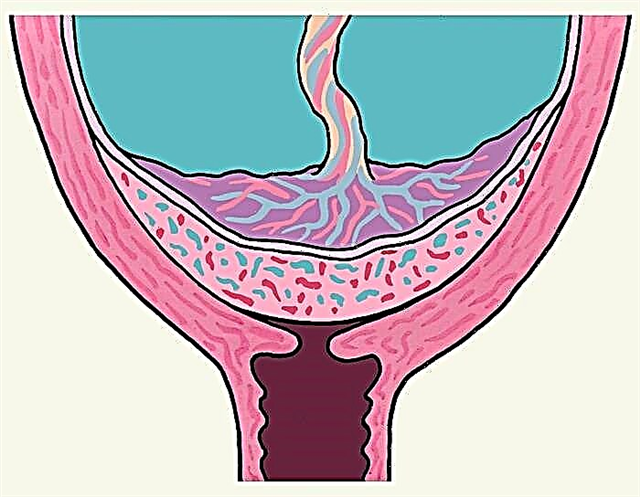
Rhinitis and sinusitis are common problems during pregnancy, especially if the baby is waiting for the baby in the winter or early spring. Since the immune system of a woman in the position does not work at full strength, the body of the expectant mother becomes less resistant to viruses, bacteria and other external influences.

To improve the condition and quickly get rid of unpleasant symptoms, a pregnant woman may be prescribed Sinupret... Such a drug has proven itself well in the treatment of rhinitis and sinusitis, but the use of tablets and drops while carrying a child in the 1st, 2nd and 3rd trimesters is prohibited without medical supervision.
If the specialist decided that such treatment is necessary, the expectant mother should pay attention to reading the instructions for the drug and reviewing the reviews.

Features of the drug
Sinupret is a drug from the German company Bionorica, which is sold over-the-counter in pharmacies in two different forms.
- One of them, liquid, is represented by drops for internal use. It is a fragrant-smelling liquid with a yellow-brownish tint, which is available in a glass bottle with a dropper in a volume of 100 ml. Since the medication is made from plant materials, the solution is usually slightly cloudy or with sediment.

- The second form of "Sinupret" are dragees, which are green and round. They are packaged in blister packs of 25 and sold in 50-100 packs per pack. The average price of one bottle of drops, like 50 pills, is 370-400 rubles. It is permissible to store the drug at home for up to 3 years from the date of release, but the shelf life of the opened liquid Sinupret is reduced to 6 months.

The active substances of the pills and drops are the same. They are represented by extracts from 5 medicinal plants:
- from elderberry flowers containing organic acids, essential oils and vitamin C;
- from gentian roots rich in gentian;
- from the verbena herb, which contains sitosterol, silicic acid, flavonoids, verbenin and many other valuable substances;
- from sorrel grass, which contains many trace elements;
- from the flowers of spring primrose, which contain vitamins, carotenoids, essential oils and other compounds.

The drops include hydroalcoholic extracts to which ethyl alcohol and purified water have been added. The percentage of ethanol in liquid Sinupret is 16-19%. Inside the dragee, vegetable raw materials are supplemented with lactose, stearic acid and sorbitol, as well as starch, water, silicon dioxide and gelatin. From these auxiliary components, a dense core of the drug is formed, and the shell of the drug is made from mountain wax, sugar, dextrin and some other substances that give it a firmness, smoothness and a sweet taste.

Operating principle
The components of both forms of "Sinupret" have a complex effect on the human body.
- All active ingredients of the drug have anti-inflammatory properties. They localize and reduce inflammation in the mucous membrane of the upper respiratory tract.
- The drug also has a secretolytic effect due to extracts of gentian and verbena. Such extracts help to thin the mucus that forms in the nasopharynx.
- "Sinupret" also has a decongestant effect. Thanks to him, drops and pills help reduce edema, as a result of which it dissolves faster, and breathing through the nose is restored.
- The ingredients of the drug affect not only the formation of mucus, but also its outflow. The action of "Sinupret", the consequence of which will be the prevention of stagnation of secretions in the airways, is called secretomotor.
- In addition, the agent exhibits antiviral activity. It is caused by substances from primrose and verbena that can affect some types of viruses, including influenza and parainfluenza pathogens.
- Has "Sinupret" and some antibacterial effect. In this case, the components of the solution and the solid form directly affect the bacteria, and also further increase the effectiveness of the antimicrobial agents.

Together, these effects make the mucus that forms on the mucous membrane of the nasopharynx thinner, which helps to cleanse the nasal cavity and prevent possible complications, including otitis media. Since Sinupret improves the drainage function of the paranasal sinuses, the sinuses are cleared of excess secretion faster, and nasal breathing is restored.
Under the influence of the drug, the protective function of epithelial cells is also stimulated, which enhances local immunity.

Is it allowed during pregnancy?
Annotation to both types of "Sinupret" allows the use of this medication during the waiting period of the child, marked "only as prescribed by a doctor." If the expectant mother has painful symptoms, she should not self-medicate, but it is necessary to consult a specialist.
Despite the fact that the active substances of "Sinupret" are extracted from plants, such a preparation is not always permitted and recommended for pregnant women. There are limitations for its use, which the attending physician must take into account when assessing the feasibility of treatment. It is undesirable to take the drug on your own.

Since the drops contain ethyl alcohol in a fairly high concentration, they try not to prescribe this form of "Sinupret" to expectant mothers, since ethanol harms the growing body. It is used only in cases when it is impossible to take pills. Basically, pregnant women are prescribed to drink the solid form of the medication.
When are they prescribed to expectant mothers?
The most common reason for using Sinupret during pregnancy is sinusitis with catarrhal or purulent secretions. The remedy is prescribed to women in a position who have been diagnosed with sinusitis, frontal sinusitis or other inflammation of the paranasal sinuses. The drug is in demand in both acute and chronic processes. The medication can also be used in the treatment of adenoiditis, tracheobronchitis, rhinopharyngitis and laryngotracheitis.

Contraindications
The drug is prohibited for patients who have hypersensitivity to any of its active or auxiliary substances. Drops are limited for diseases of the brain or liver. Dragees are not prescribed for lactase, isomaltase or sucrase deficiency, as well as for glucose-galactose malabsorption, galactose, lactose or fructose intolerance.
Side effects
Since the basis of Sinupret is medicinal plants, the drug can cause an allergic reaction. In some women, taking this medication causes skin redness, shortness of breath, swelling, rash or itching, which forces them to immediately stop treatment. Occasionally, a negative reaction from the digestive tract in the form of nausea, abdominal pain and other symptoms occurs on Sinupret. When they appear, further use of the drug should also be abandoned.

Instructions for use
Dragee is swallowed with water. It is impossible to bite through the drug, as damage to the shell will reduce its effectiveness. A single dose of "Sinupret" is determined by the attending physician, but most often the medication is taken three times a day, one dragee. The duration of treatment varies depending on the disease, but the most common courses are 7 or 14 days.
If the expectant mother has been prescribed drops, then before use, the bottle with the medicine must be shaken so that the plant components that have settled to the bottom are evenly mixed. In the dose prescribed by the specialist, liquid Sinupret is dripped into water and then drunk.
The frequency of admission, as well as the duration of therapy, is set individually.

Reviews
There are mostly positive reviews about the use of Sinupret during childbearing. In them, the drug is called effective, noting that the remedy helped get rid of sinusitis or a lingering rhinitis. The main advantage of the drug is considered its natural basis. The dragee is praised for its small size, allowing the drug to be swallowed without any difficulty.
To the main cons include the high cost and the presence of ethyl alcohol in the drops. You can also find reviews in which women complain about the lack of a therapeutic effect.

Analogs
- One of the options for replacing Sinupret is a drug called Tonsilgon N, which is also produced by Bionorica in the form of drops and pills. The basis of the product is other plant components, including yarrow, walnut, dandelion, marshmallow, chamomile, horsetail and oak bark. The medicine has antiseptic properties, and also helps to eliminate swelling of the mucous membrane, reduces inflammation in the upper respiratory tract and increases local immunity. It can be used during pregnancy under medical supervision.

- In addition, instead of Sinupret, the doctor can prescribe GeloMirtol capsules to the expectant mother. Their active substances reduce the viscosity of secretions that are produced in the respiratory tract, and also have antimicrobial, antioxidant and fungicidal properties. The drug is in demand for sinusitis and bronchitis. It is used with caution during pregnancy, especially in the early stages. With a pronounced inflammatory process, capsules "GeloMyrtol Forte" can be used, which are distinguished by higher dosages of active substances.




